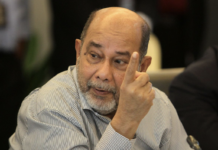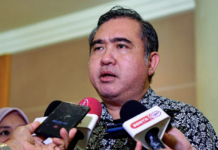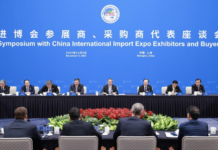PETALING JAYA, Dec 20 — Being an Indian-Malaysian migrant and facing white contenders in an election for the post of mayor in New Zealand seems a daunting one.
Not for Penang-born K Gurunathan. Not only did he win the elections in the city of Kapiti Coast in 2016, he went on to retain his mayoral post early this year, an endorsement of his leadership in that part of the world.
The former journalist attributed his success to a society which recognises talent irrespective of colour or creed, track record and meritocracy, something he says Malaysians should emulate.
Gurunathan is among many successful Malaysians hogging the local media of late with their successes abroad.
The others include Jocelyn Yow, the 25-year-old Malaysian of Chinese-Vietnamese descent who is set to become mayor of Eastvale, a town of 55,000 located an hour east of Los Angeles, California.
In Western Australia, 60-year-old Malaysian-born Sam Lim won the policeman of the year award, becoming the first non-white to clinch the coveted prize.
Guru, as he is fondly called, felt the result was a confirmation of the legitimacy of his previous term, and the public confidence he had built to show that ethnicity, race or religion should transcend all barriers.
“Obviously, they like candidates who keep their campaign pledges and touch the lives of the people. People don’t like a council where there is much in-fighting,” he told FMT in a telephone interview.
The father of three is no stranger to politics. In Malaysia, he was editor of the DAP’s newsletter The Rocket in the late 80s, at a time when it was circulated widely.
This was during the infamous Ops Lallang in October 1987, which saw more than 100 politicians and activists detained without trial under the Internal Security Act during Dr Mahathir Mohamad’s first watch as prime minister. Four newspapers were also shut down.
Guru, 66, started off as chief reporter in 1983 with the now defunct Penang-based The National Echo. He then edited The Rocket before contributing to the New Straits Times as a political commentator.
He was special features editor with The Sun before leaving for Wellington with his Kiwi wife Claire and two young children in 1995. They have three children – Jessie Gayathri, 36, Ravi, 32, and Ari, 22.
He is also the younger brother of veteran journalist K Sugumaran and brother-in-law of Penang exco member Chong Eng.
In New Zealand, he worked for a local community paper The Kapiti Observer from 1995 to 2008 and later Kapiti News where his column ‘Notes from a Corner Dairy’ became a must read.
“The title caused a stir as it’s common for new migrant Indians in NZ to own corner dairies.
“The association is often used as a racist joke. I used it as a reverse psychology to subvert that racism,” he explained.
Guru said his key message in his campaign was for an open, transparent and accountable council, adding that being a migrant and from a minority community was not an issue.
“Being married to a Kiwi may have been a help too,” he said.
The win, he said, came also as a result of his track record as a two-term councillor since 2010 and his last three-year term as mayor.
Guru, who has a Master’s degree in political science from Victoria University in Wellington, said he had a very good understanding of local issues. .
“Kapiti has been home to me for 30 years. The saddest and most joyful day for me was when I became a New Zealand citizen.
“Saddest because my original home does not accept dual citizenship so I had to surrender my Malaysian nationality. I’m thankful the Kapiti Coast has been a blessing on my family,” he said.
Asked if he missed home, Guru said he did not miss the convoluted politics of race and religion in Malaysia.
“I feel sad as it has transformed into a nation of people fighting for race and religious supremacy all the time. Whatever is being done is for political power and not with the citizens in mind,” he said.
Former youth and sports minister Syed Saddiq Syed Abdul Rahman acknowledged the problems when Yow’s achievement became viral.
“Many people say Malaysia only appreciates its citizens (or those who have a relationship with Malaysia) when they succeed abroad.
“Maybe there is some truth to this. Also, foreign countries look at merit, while Malaysia looks at cronies,” said the Muar MP.
















